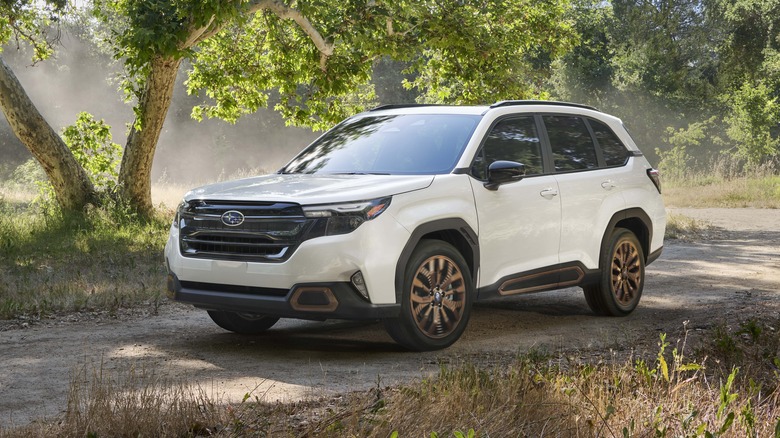The Downsides of a Subaru Forester: Pros and Cons Revealed

A Reliable Choice for Adventure and Daily Use
Subaru has long been a favorite among adventure seekers, thanks to its lineup of reliable and capable SUVs designed for off-road exploration. Among these, the Subaru Forester stands out as a model that has evolved over six generations. As an automotive mechanical engineer with over a decade of experience testing and reviewing vehicles, I've had the opportunity to drive various iterations of the Forester. Each model has consistently proven to be well-suited for both daily commutes and rugged adventures.
From my perspective, the Subaru Forester is one of the most dependable compact SUVs available. It has endured the challenges I've put it through without major issues. This reliability stems from its naturally aspirated four-cylinder Boxer engine and symmetrical all-wheel drive system, which make it a solid choice for light off-roading. However, while it excels in certain areas, there are some compromises due to its design focus.
Off-Road Capability with Some Limitations
One of the key strengths of the modern Forester is its commitment to off-road performance. The 2025 model, for example, comes standard with a symmetrical all-wheel-drive system and 8.7 inches of ground clearance, making it suitable for navigating muddy trails and mountainous terrain. Upper trims, such as the 2025 Wilderness edition, offer additional features like a dual-function X-Mode with multiple traction settings and all-terrain tires. These tires enhance grip on rough surfaces but can reduce fuel efficiency.
Despite its off-road capabilities, the Forester isn't the best option for those who prioritize towing. Even the top-tier Wilderness trim can only tow up to 3,000 pounds, which is significantly lower than competitors like the Jeep Cherokee (4,500 pounds) or the Land Rover Discovery Sport (4,409 pounds). If you frequently pull trailers or heavy loads, this limitation may be a concern.
Performance and Power Considerations
Under the hood, the Forester features a 2.5-liter four-cylinder Boxer engine that produces 182 horsepower and 176 lb-ft of torque in the Wilderness trim. Other trims have slightly less power, with 180 horsepower and 178 lb-ft of torque. While this engine is efficient and reliable, it doesn't deliver the kind of power enthusiasts might expect. Acceleration is somewhat sluggish, with the 0-60 mph time clocking in at around 10 seconds or more. For quicker acceleration, models like the turbocharged Outback or rivals such as the Mazda CX-5 and Honda CR-V may be better choices.
Spacious and Practical Interior
Beyond its off-road capabilities, the Forester also offers a spacious and practical interior. Its cargo space is among the best in its class, with the 2025 model providing 74.2 cubic feet of space when the seats are folded flat. This makes it ideal for carrying bulky outdoor gear or small furniture. The cabin is also roomy, with 41 inches of headroom and 43 inches of legroom in the front, and 39 inches of headroom and legroom in the rear. The elevated seating position provides a commanding view of the road.
The infotainment system is intuitive, especially in higher trims like the Premium, which features an 11.6-inch display. However, the base trim only includes a single USB-A port, which may be a drawback for some users.
Trade-offs in Comfort and Noise Levels
While the 8.7-inch ground clearance enhances the Forester's off-road performance, it also contributes to a noisier cabin. At highway speeds, wind and road noise can be more pronounced compared to competitors like the RAV4 or CR-V. This lack of sound insulation may be a concern for drivers who prioritize a quiet ride, especially during long road trips.
Additionally, the suspension setup, while beneficial for off-road comfort, results in a harsher ride on city roads. Passengers may notice jolts over potholes and uneven pavement, making the Forester less appealing for urban drivers who prefer a smoother experience. In such cases, crossovers like the Hyundai Tucson may be a better fit.
Conclusion
Overall, the Subaru Forester is a versatile and reliable choice for those seeking a balance between daily use and off-road capability. Its strong points include durability, off-road performance, and ample cargo space. However, potential buyers should consider its limitations in terms of towing capacity, power, and noise levels. Whether you're planning a weekend adventure or need a reliable family vehicle, the Forester offers a compelling package for many drivers.